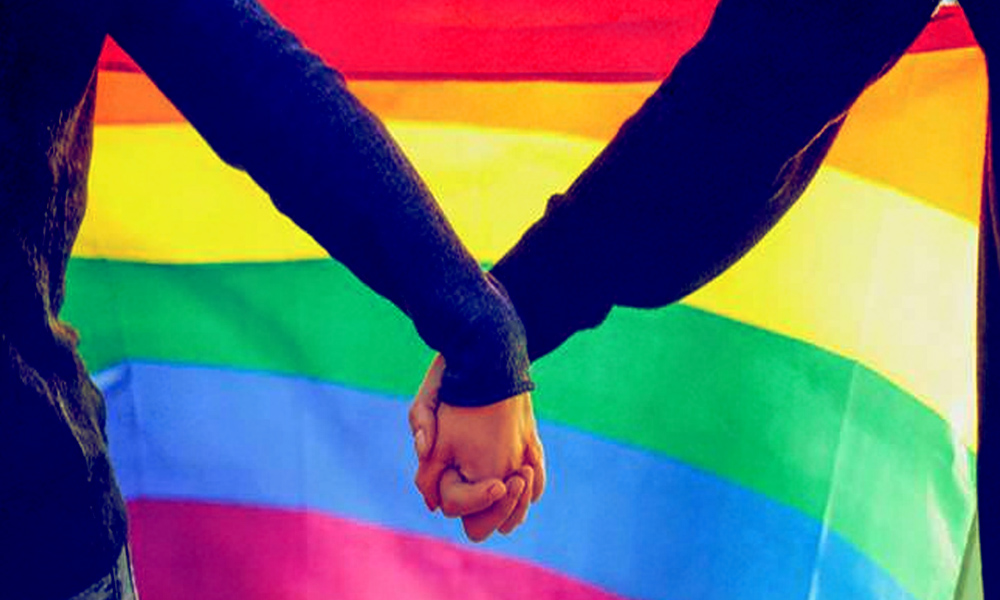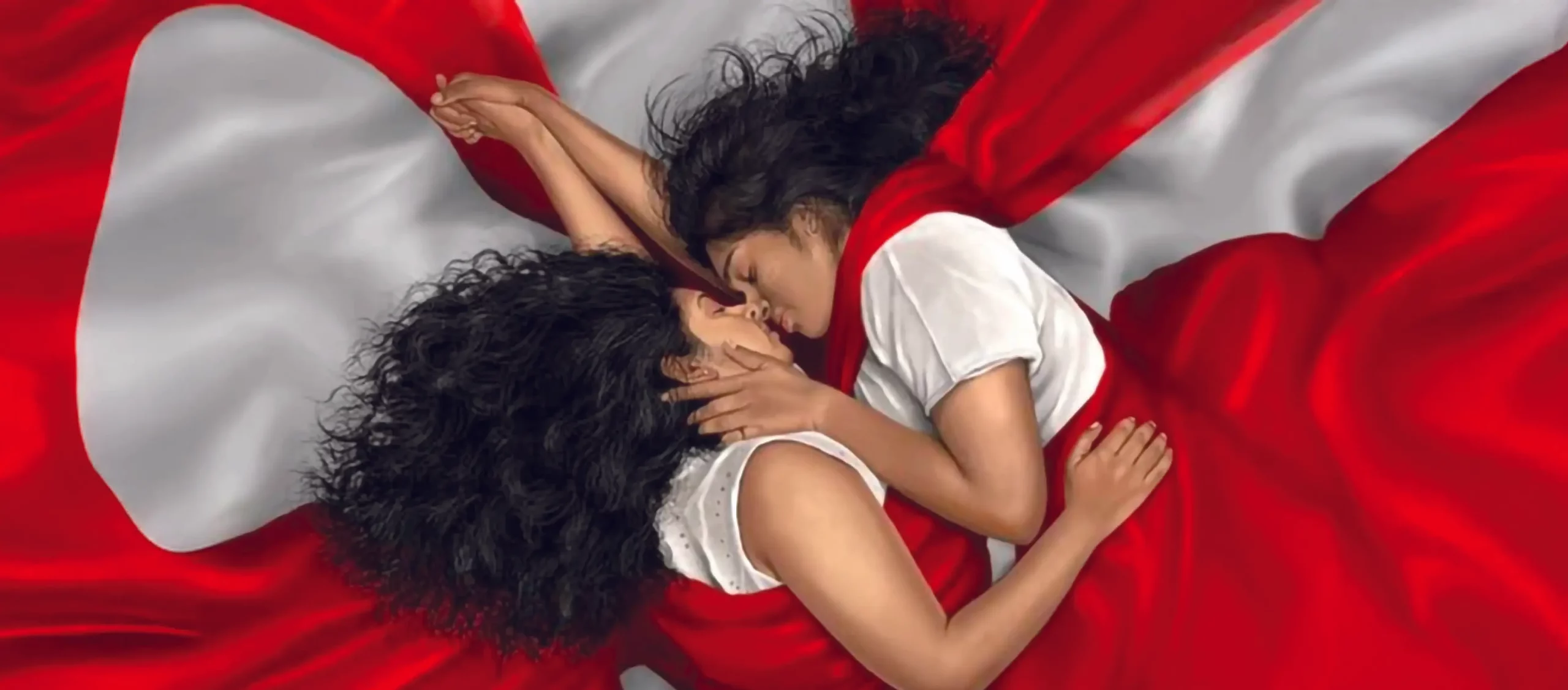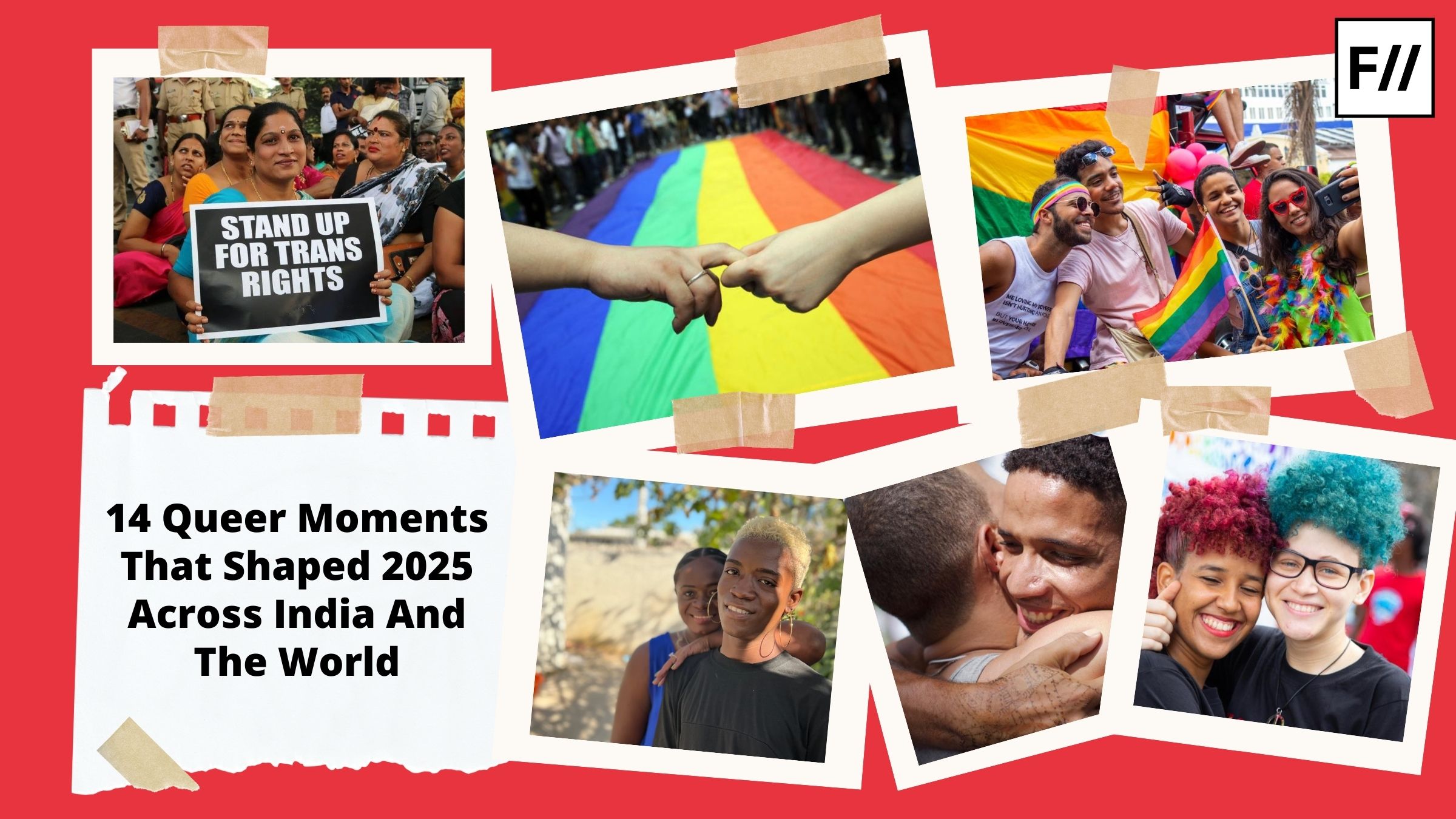The Centre on February 25 told the Delhi High Court that despite the decriminalisation of homosexuality under Section 377 of the IPC, same-sex marriage was not a fundamental right in the country, Bar and Bench reported. As per the Centre, the same-sex couple living together as partners and having a sexual relationship was not comparable with an “Indian family unit.” The affidavit filed by Centre reads, “Living together as partners and having a sexual relationship by same-sex individuals is not comparable with the Indian family unit concept of a husband, a wife and children which necessarily presuppose a biological man as a ‘husband,’ a biological woman as a ‘wife’ and the children born out of the union between the two,” the affidavit stated, according to Bar and Bench. The Centre’s affidavit indicates the inherent homophobia and mirrors a populist strategy to further the heteronormativity in Indian society.
Male chauvinism, and heterosexist views have been central and play a crucial role in forming a populist cleavage and generates the ideals of a heteronormative family where the hypermasculine man protects and provides. The woman is there to serve and sacrifice and further the family name by using her uterus.
After Independence, the postcolonial state of India wanted to become a semi “modern” nation-state, and this modernity “would lie in combining the superior material qualities of Western cultures with the spiritual greatness of the East,” outside of the sovereignty of the British rule. The idea was to develop an “Indian” sense and prohibit a complete reformation. The establishment elites thought that if complete modernisation or reformation occurs, the difference between the “Indian Sanskaar” and Western culture would disappear, and the self-identity of national culture would itself be threatened. Hence a duality has become the ethos of Indian nationalism and has thrived on the distinction between the public and the private. But in both the sphere, male chauvinism, and heterosexist views have been central and play a crucial role in forming a populist cleavage and generates the ideals of a heteronormative family where the hypermasculine man protects and provides. The woman is there to serve and sacrifice and further the family name by using her uterus.
Also read: 3 Loopholes In The Push For Same-Sex Marriages In India
The Supreme Court of India decriminalised homosexuality and recognised transgender rights in recent times. However, such advancements are being diluted by the gendered, authoritarian and populist projects now-a-days. The project, which marketises Hindutva, claims to empower and protect women, but in reality, disempowers them. Hindutva marketisation occurs when a neoliberal economic approach merges with Hindu nationalism. The marketing is based on populist politics of resentful aspirations, vote-bank politics, a Hindu national identity in the Indian state and society, and facilitating economic growth through the consolidation of neoliberal reforms. Priya Chacko wonderfully explains in her work that the Hindutva identity reconstructs “the people” as virtuous market citizens who are regulated and disciplined through the moral frameworks of Hindu nationalism. Quite obviously, the gendered nature of ethno-religious nationalism and neoliberalism produced by this authoritarian populist politics – valorise and demonise particular types of gendered subjects.
Cultural theorist Stuart Hall says that populism is “political articulation” using which political parties attract and ensure large support bases through discursive and mobilisational strategies and create a rift between everyday people and alleged establishment elites. The notion of authoritarian populism here refers to populist strategies to legitimise exclusionary state practices by benefitting a particular ethnoreligious community (Savarna, cisgender, straight Hindu male). Simultaneously, this form of authoritarian populism nurtures antipathy towards all kinds of minorities (sexual minorities in this case) and inspires reactionary aspirations toward them.
Political theorist Christophe Jaffrelot explains how populism relates paradoxically to democracy in two ways. First, the populist leaders align themselves with people’s interests against the elite’s vested interest and are in favor of more democracy. Second, populism often develops within democracy as it requires a public arena for mobilisation of masses by playing on emotions like fear or anger. However, when they come into power, they turn authoritarian and pervert democracy. In the case of National Populism, the authoritarian trend often turns minorities into second-class citizens and reflects the crisis of liberal, representative democracy. This newly branded Hindu-nationalism is extremely gendered and perpetuates patriarchal, sexist, and heterosexist values that lead to the oppression of the LGBTQ+.
So the concept of the Indian family is purely heteronormative as per the current government. The heteronormativity is maintained and perpetuated by social institutions such as marriage or everyday actions of individuals. Victorian-Indian ethics has already set a heteronormative social institution of “normal” sexuality and family values. These social institutions reinforce heterosexuality as the norm that will privilege those who would ‘fit’ into the existing mold of this dominant form of sexuality. Heteronormativity follows a prescribed set of actions and experiences through gender stereotyping, leading to the forming of biases of acceptable and unacceptable groups of people. Until recently, the heteronormative female sexuality was being policed and purified. With the rise, acceptance, and celebration of queer citizens in liberal democracies worldwide, disciplining queer sexualities has become part of the nationalist project. In 2021, driven by populist politics, instead of educating and spreading awareness, the Centre is defining the archaic concept of “family” and illogically pathologising and questioning same-sex marriage.

Little do they know (or rather purposefully neglecting it for the sake of majoritarian politics) about the traditional Indian idea of sex and sexuality. Although the concept of sexuality in India had traditionally been intertwined with spiritual, religious, and scientific values, stereotypes and stigma around sex and sexual minorities are pervasive at present. This bias is a product of a sense of morality influenced by Victorian ethics that have been stigmatising and ridiculing traditional Indian sexual liberalism and pluralism. Despite several developments and ongoing feminist and queer movements in the postcolonial era, the attitude of sexual tolerance did not recur, and “sexuality” is still a grey area or an “undercover” activity to be done in the dark. Even sex education in school elicits cringing and joking.
With the rise, acceptance, and celebration of queer citizens in liberal democracies worldwide, disciplining queer sexualities has become part of the nationalist project. In 2021, driven by populist politics, instead of educating and spreading awareness, the Centre is defining the archaic concept of “family” and illogically pathologising and questioning same-sex marriage.
Also read: Same-Sex Marriage In India: Unveiling The Marriage Project
Needless to say, India has become a nation of sexual paradoxes: For example, it is the 2nd most populated countries, yet it is a capital of male impotence; India gifted Kamasutra to the world, yet the sexual and physical violence against women and hate crimes against individuals with same-sex sexual orientation are soaring each day. Finally, the most problematic notion of all is a culturally endorsed idea of sexuality is, “sex is a medium of procreation rather than recreation.”
A family does not necessarily mean a husband and wife and their biological children. Any single person can have a family as she/he/they wish. It can be with the books, the cats, the dogs, or whatever. Men/women/non-binary folks living together can also have a family as per their definition and understanding. A family can include a married man and woman who are childfree by choice, or it may consist of a straight/gay or lesbian couple, or one or more non-binary folks, with their adopted baby/ies. It’s high time we redefine the notion of a healthy family that is inclusive and happy and follows the ideas of people or person making it.
Featured image source: Scroll.in
About the author(s)
Dr. Tuli Bakshi, is a postdoctoral researcher in the Department of Earth Sciences, IIT Bombay. She is also an LGBTQ rights activist and a blogger who writes on feminist issues.





sad how india is so behind in the world. let people love who they love and stop interfering in their lives